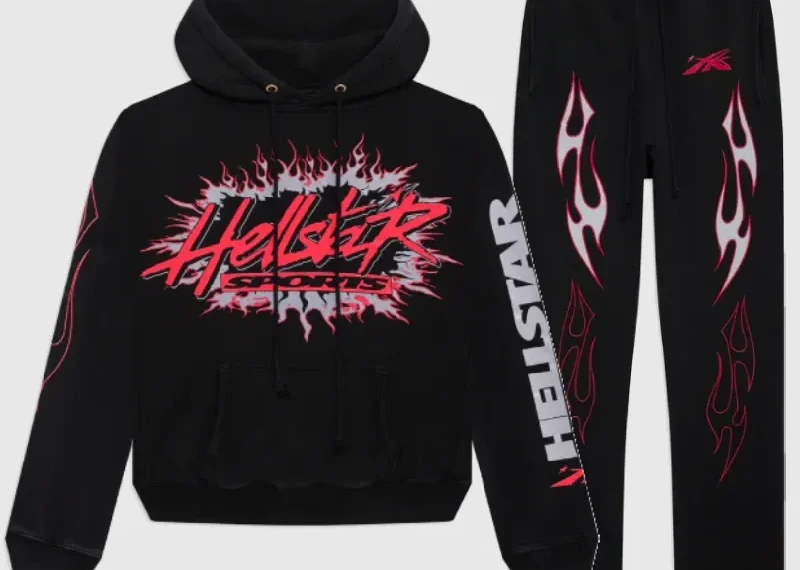The phrase “In Glock We Trust” printed boldly across a shirt isn’t merely a fashion statement—it’s a layered symbol of resilience, identity, survival, and the entrepreneurial spirit born from adversity. To understand the cultural and personal significance behind the “In Glock We Trust” shirt, one must trace its roots back to early life circumstances, urban culture, and the hustle-centric environments that shape young lives, especially in marginalized communities.
This essay explores how early life experiences influence fashion and identity, using the “In Glock We Trust” shirt as a focal point. It delves into its potential meanings—from literal interpretations of street survival to broader commentaries on trust, power, and independence—and how these are represented in the journey of individuals and collectives who’ve worn or created this iconic slogan.
I. A Phrase Born from Environment
The phrase “In Glock We Trust” is a gritty reinterpretation of the American motto “In God We Trust,” replaced with “Glock,” a brand of handgun that has become emblematic in music, urban life, and self-defense culture. In many neighborhoods plagued by poverty, lack of institutional trust, and systemic inequality, survival often depends not on divine providence, but on tangible forms of protection.
For many youths growing up in disenfranchised communities, early life is shaped by uncertainty. Underfunded schools, street violence, limited job prospects, and fractured family structures form the backdrop of daily life. In such an environment, the “Glock” becomes more than a weapon—it becomes a symbol of power, control, and autonomy in a world that otherwise offers none. The phrase encapsulates a hardened philosophy: trust in nothing but yourself and your means to survive.
The shirt, when worn, becomes a silent testament to one’s upbringing—a badge of experience, toughness, and realness. It represents a reality where belief systems are forged through struggle rather than faith.
II. Personal Identity and the Rise of Street Fashion
The power of self-expression through clothing has always played a crucial role in marginalized communities. In areas where voices are often silenced, style becomes a form of resistance, pride, and storytelling.
The “In Glock We Trust” shirt emerged as part of a larger movement of streetwear that blends personal narrative, social commentary, and raw authenticity. Unlike mainstream fashion, streetwear often reflects lived realities—good and bad. For someone who grew up seeing friends fall to violence or incarceration, wearing such a shirt isn’t glorification—it’s acknowledgment.
Early in one’s career—whether as a rapper, designer, or entrepreneur—branding is everything. Many who break out from the streets into the industry use their early experiences to build authentic brands. The “In Glock We Trust” shirt becomes part of that branding. It tells an origin story that is unfiltered, uncomfortable, and real.
Take, for example, young artists who come up through underground rap scenes. They often adopt monikers, logos, and phrases that reference their early life. It’s not uncommon for a clothing line to launch before an album does. Clothing becomes both merchandise and a declaration of one’s background and ethos.
III. From Survival to Enterprise
The story of early life and the launch of a career are often inseparable. The people behind slogans like “In Glock We Trust” frequently start with nothing but a dream, some grit, and a few T-shirts. Streetwear brands have long been a gateway for individuals to escape cycles of poverty and find a legitimate outlet for creativity.
The early grind might involve selling shirts from the trunk of a car, at local events, or on social media. Each shirt sold is more than profit—it’s validation. It’s proof that a story rooted in pain and perseverance has market value. It’s evidence that early life doesn’t have to define your end.
Building a brand based on something like “In Glock We Trust” isn’t just about aesthetic appeal; it’s about owning one’s narrative. When larger fashion houses co-opt urban styles without understanding the pain and pride behind them, it waters down the message. But when the phrase comes directly from the source—someone who’s lived it—it carries weight and integrity.
IV. Music, Influence, and Cultural Currency
The popularity of the “In Glock We Trust shirt can’t be separated from the rise of music as a storytelling medium—particularly hip-hop and trap. These genres have long been autobiographical, giving voice to the voiceless and platforming stories that America often prefers to ignore.
In songs where artists recount tales of growing up with nothing, dodging jail, or mourning lost friends, the “Glock” frequently appears as a metaphor for both protection and paranoia. When a rapper wears a shirt with the slogan “In Glock We Trust,” it’s a visual lyric—an extension of the music itself.
Fashion and music influence each other in a feedback loop. A shirt worn in a viral video or on stage can explode overnight. Suddenly, what was once a niche local brand becomes a national movement. Artists often use this synergy to launch their careers. A single phrase on a shirt can lead to interviews, features, and financial independence.
V. Controversy and Misinterpretation
Of course, a phrase like “In Glock We Trust” doesn’t come without controversy. To many outside of the culture, it may seem like an endorsement of violence or criminality. Critics argue it glamorizes gun culture in a country already plagued by mass shootings and gun-related deaths.
But to reduce it to that is to miss the point. For many wearers and creators, the phrase isn’t about glorification—it’s about documentation. It’s about telling the truth of an environment that birthed them. It’s a critique of the system, not a celebration of violence.
In interviews, many creators of such streetwear have spoken about how their early life wasn’t about choices—it was about survival. The shirt becomes a reminder: that they survived, that they found a way out, and that their story deserves to be heard and worn.
VI. A New Narrative: Empowerment Through Ownership
As many streetwear founders and artists grow from their early life into mature entrepreneurs, the narrative begins to shift. “In Glock We Trust” may still resonate, but the context evolves. What was once a slogan of survival can become a symbol of empowerment.
With success, these individuals often reinvest in their communities—funding youth centers, launching mentorship programs, or offering jobs. The shirt, once a symbol of street grit, transforms into a sign of triumph and possibility. It becomes part of a larger story: one where early life didn’t break them—it built them.
Some designers re-release the shirt with new meanings, new fonts, or paired with symbols of peace or education. This evolution speaks to a deeper truth: identity is never static. The meaning of the phrase can change, just like the people who wear it.
VII. Conclusion: From the Streets to the Spotlight
The story of the “In Glock We Trust shirt is ultimately about transformation. It’s about how early life—no matter how rough—can be the soil from which something powerful grows. It’s about taking the elements of struggle, pain, and survival, and turning them into art, business, and influence.
Whether worn by a kid trying to make it out, a rapper telling his truth, or an entrepreneur building a brand, the shirt speaks volumes. It reminds us that behind every slogan is a story. Behind every fashion trend is a life that shaped it.
And in a world where trust is hard to come by, maybe it makes sense that people put their trust in what’s real, what’s theirs, and what they can control—even if, at one point, that was just a Glock and a dream.















